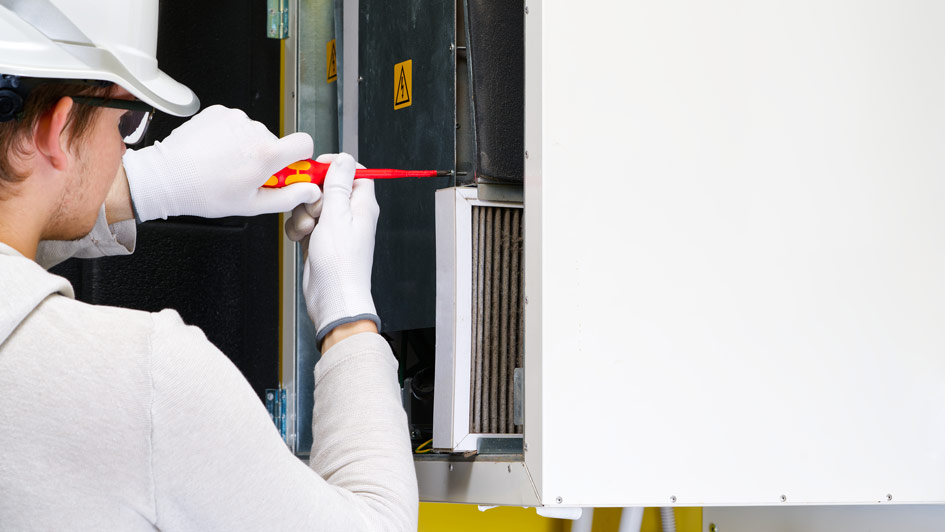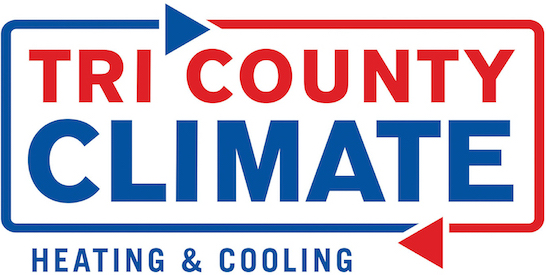
Whether it’s a leaky furnace or if you flip the switch to start your heating system when it gets chilly and it won’t start, common furnace problems can strike your home at any moment.
Regardless of the issue, understanding how your heating system works and a little bit about some typical furnace problems is essential in deciding whether you can troubleshoot on your own or if you need professional assistance. By observing the furnace's behavior, listening for strange noises and checking for signs of damage or blockage, you can narrow down the possible causes.
If you're uncertain about the problem or don't have the necessary skills and tools, it's best to call a professional HVAC company like Tri County Climate Control LLC. We can accurately pinpoint the issue and perform the required repairs or maintenance, so we can get your furnace working again ASAP.
Here's more about what causes a furnace to leak water and eight other prevalent heating problems:
1. My Furnace Is Leaking Water
A furnace can leak water for many reasons. One possibility is a condensate leak, where the water produced during the combustion process is not effectively draining away. This could be due to a clogged condensate drain line or a malfunctioning condensate pump. Another likely cause of water leakage from a furnace is a cracked heat exchanger, which can result in water—as well as dangerous gases—leaking out of the furnace.
It is imperative to deal with water leaks quickly to prevent further damage to your furnace. Contacting a professional HVAC technician like the crew at Tri County Climate Control LLC is recommended to diagnose and resolve the issue successfully.
2. My Furnace Is Blowing Cold Air/Lack of Heat
Some likely causes for a furnace blowing cold air or not blowing hot air include a malfunctioning thermostat, a problem with the pilot light or ignition system, a blocked air filter, or a malfunctioning heating element. It is also possible your furnace is overheating and shutting off as a safety measure.
If your furnace won’t blow hot air, it's better to contact a skilled HVAC tech to diagnose and fix the problem. They can give an accurate assessment and advise you on the proper solution.
3. My Furnace Is Not Keeping Up
A frequent reason your furnace isn’t keeping up on a cold day is that your home doesn’t have enough insulation, which can cause heat loss and lower efficiency. Another reason your furnace is having difficulties is because it’s not big enough for your home, so it can’t produce enough heat to effectively warm the space. A defective thermostat or ductwork problems can also produce uneven heating.
To address this, first assess your home’s insulation level and make sure it’s enough to insulate your home. Also, look at the thermostat to make sure it’s set right and the batteries still function.
If the problem lingers, consider calling an experienced HVAC company, such as Tri County Climate Control LLC, who can assess your system, determine the root cause and provide solutions such as furnace replacement, repairing ductwork or modifying your thermostat settings.
4. My Furnace Is Not Working
If your furnace is not working, there are a couple of steps you can take to troubleshoot before contacting a pro. Check if the thermostat is set correctly and the batteries are fresh. If the furnace still doesn't power on, check the circuit breaker or fuse box to ensure power is reaching the system.
If there is power but your furnace won't ignite, the problem may be with the ignition system or gas supply. In that case, it's best to consult a seasoned HVAC professional for diagnosis and repair.
5. My Furnace Turns On and Off
If your furnace is short cycling, this means it is turning on and off often at short intervals instead of running in regular cycles like it ought to. This can lead to inefficiency, more energy use and potential damage to your furnace.
If you believe your furnace is short cycling, the first step is to look at your unit’s air filter. Filters should be changed on a regular basis to ensure air flow, so if your furnace air filter is plugged with dirt you should exchange it for a clean one—and make sure it is pointing in the right direction. Next, go to your thermostat and verify it’s set right and the batteries are good.
If those two things don’t work, it’s best to call experts like the crew at Tri County Climate Control LLC. Immediate professional attention will help restore the proper functioning of your furnace and prevent further complications and high energy bills.
6. My Furnace Hums All the Time
When your furnace is making a humming noise, it often is a sign of problems with the electrical components or the blower motor. Therefore, if you hear your furnace making a humming noise, it is crucial to take action.
If the noise continues, it is a good idea to employ a professional HVAC technician.
7. My Furnace Makes Loud Noises
If your furnace is emitting a persistent loud noise, it's important to address the issue right away to prevent further damage or potential safety concerns. One common problem that causes this is a malfunctioning blower motor or fan, which can generate a grinding or screeching sound. Another possible cause is a loose or worn-out belt that may make a squealing or rattling noise.
Given the complexity of furnace systems and potential risks involved, it's safer to consult with a heating and cooling specialist.
8. My Furnace Is Not Turning On
If your furnace won't turn on, make sure the thermostat is set to the preferred temperature, is in heating mode and the batteries are working. Then, check if the circuit breaker or fuse controlling the furnace is sending power to the unit. If these basic checks don't fix the problem, you can check the furnace's power switch or emergency shutoff switch to verify they're in the "on" position and weren’t accidentally turned off.
If those steps don’t do the job, call a professional for furnace repair.
9. My Furnace Is Not Igniting
Like a a furnace not turning on at all, a furnace that isn’t igniting can be the result of a clogged air filter or a tripped circuit breaker. So, checking the air filter and looking over your circuit breakers are a good place to start.
Other potential causes of a furnace not igniting include a faulty igniter or faulty flame sensor. Signs of these include the furnace continually making an attempt to ignite without success, an absence of heat production or the furnace is making a burning or gas smell. Both of these issues can be simply repaired by HVAC professionals like the team at Tri County Climate Control LLC.

